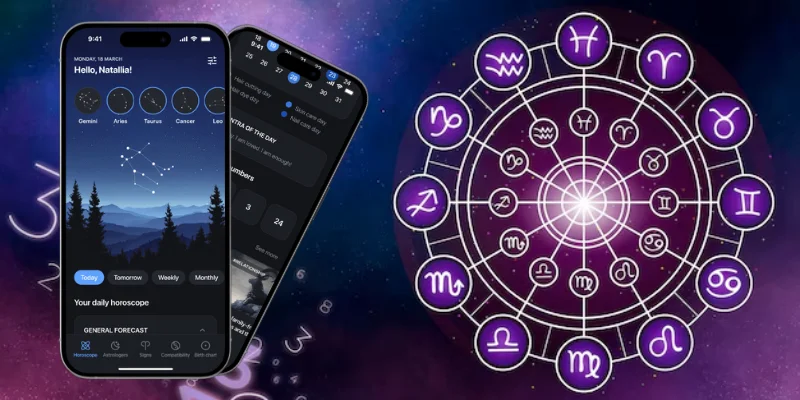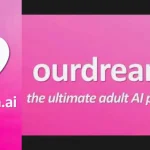Astrology has been one of the interesting studies that gives information on personalities, relationships, and even events in life as derived from the celestial movements. Nowadays, digital technology has created the rise of apps for astrology.
These apps will provide a daily horoscope, compatibility reports, birth charts, and even personalized astrological services. The problem is developing an effective app for astrology.
In this blog, we’ll discuss the top challenges during astrology app development and their solutions, ensuring your app becomes user-friendly, reliable, and enjoyable for your audience.
Key Challenges in Astrology App Development and Effective Solutions
Developing an astrology app comes with its own challenges. An astrology app development company tries to create a user-friendly application regarding privacy and security. Once the developers recognize these challenges and incorporate related effective solutions, they can develop an interesting yet reliable application for users who are interested in astrology.
1. Accurate Astrological Data
Most important in the design of an astrology application is that it ensures that the data it gives its users will be reliable. Astrology depends highly on the proper computation of time, date, and place of birth, as well as the location of celestial objects.
An error in these calculations may lead to wrong horoscopes, birth charts, or predictions, which may severely impact user trust.
How to Avoid This Problem:
In order to overcome this, one needs a professional astrologer or a reliable source of data that can provide precise information. In this regard, many companies behind application development partner with professional astrologers to make sure that their applications is offering the right readings.
Further, the developers also use data banks and algorithms that have been confirmed and are updated on a regular basis to keep the app’s forecast so accurate.
2. UX/UI Design
These astrologers deal with many complex pieces of information that can overload the user when not presented nicely. The key challenge is coming up with an interface that displays astrological information in an entertaining, easy-to-understand format.
A mess or confusing layout will scare the users away, even if the prediction accuracy is above par.
Way out of this Problem:
To approach this problem, maintain a clean, intuitive design. The UI should be simple and easily navigable from one section to another, like daily horoscopes, birth charts, and compatibility reports. Visuals like charts, graphs, and symbols should be used thoughtfully so that the information does not overwhelm the user.
A smooth onboarding experience and interactive features will make the app more engaging. It is always a good idea to work with a professional mobile app development company, such as a mobile app development company Denver, to seek professional advice on user-centric design.
3. Personalization and Customization
Each user is unique, and astrology apps have to ensure personal experiences that help keep the user engaged. Customized horoscopes or more detailed birth charts are all included in astrology apps, allowing features that allow tailored insights into an individual’s astrological data.
However, implementing such personalized features is not a simple task.
How to Overcome This Challenge:
To personalize, developers can create algorithms that analyze a user’s birth details, preferences, and previous activities on the app to give a user-specialized reading or suggestions.
Using machine learning algorithms can also enhance predictions and deliver more accurate, personalized content over time. The interactive user feedback can guide more-personalized features for the end users.
4. Astrocalcs Integration
Many of these apps require a number of complex calculations to obtain the various astrological aspects like planetary positions, zodiac signs, and house placements.
Thus, developing a strong algorithm to execute such calculations would technically be difficult since the application is expected to give results in real time.
How to Overcome This Challenge:
It is very important to work with experienced developers who are familiar with astrology and the algorithms involved. They can save the time of the app developer as well as the chances of error by using libraries or tools that already handle astrological calculations.
Optimizing the app for real-time performance will also increase the user experience, as there will be no lag when results are displayed.
5. Monetization and Revenue Models
The other problem the developers of an astrology app face is monetizing the app. Free services will attract users, but revenue potential may be limited. Offering paid services or subscriptions may discourage users from downloading the app.
A balance between free and premium content is important to make the app financially successful.
How to Overcome the Challenge:
In different monetization models, you have the option, for example: in-app purchasing with premium features, such as personal horoscope or consultation through an astrologer.
Other monetization approaches include subscription methods, where continuation services are allowed, such as daily horoscope or yearly prophecies. Freemiums, where a free feature serves as a free basic and offers paid features going into more detailed complexity, form the most generally used model within most astrology-based apps.
There needs to be enough value provided in the paid version to make the users subscribe to it.
6. Engagement of Users
Engagement is the key to any mobile application. In the case of astrology applications, users get bored if the content of the application becomes monotonous or doesn’t update at the right time.
Keeping an application exciting and having users return over and over is a challenge developers face constantly.
Solution of the Problem:
To keep users interested, content should be frequently updated in the astrology app; this may be through providing fresh horoscopes, articles, or even astrological compatibility quizzes. The gamification of the application will include astrology-based challenges and reward features for logins made every day.
Integration of social sharing options where the user can share their birth chart or horoscope readings with friends is another source of interaction for users.
7. Performance and Speed of the App
Astrology apps are very data-intensive: from horoscopes to charts, and they need to load all this data as fast as possible. Slow performance can lead to bad user experiences and, finally, abandonment.
How to Overcome This Challenge:
For the app to run without any hitch, it needs optimized coding and performance testing on a regular basis. Optimizing the loading time of the app, especially for complex features such as birth charts and real-time astrological calculations, will be the focus.
Optimizing the database and employing caching techniques is also a big performance booster for the app.
Conclusion
Developing an astrology app has its unique set of challenges. However, these challenges can be overcome accordingly. The successful creation of a competitive yet highly demanded astrology application will result from proper data accuracy, user-friendly design, robust security measures, and decent content.
The right strategy can really make your app worth it by offering insights and experiences to users that would really make them sail through their astrological journey with ease.







